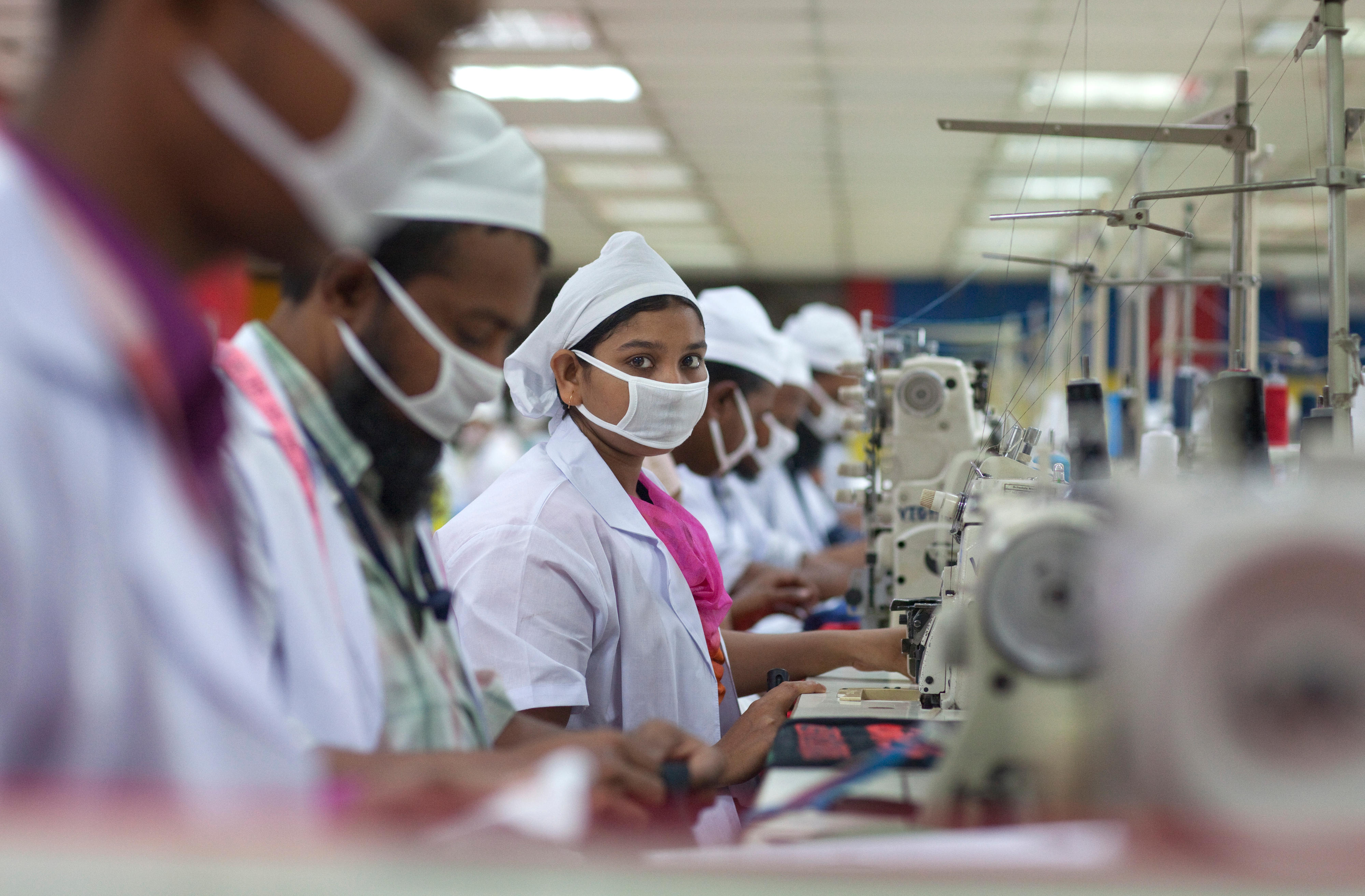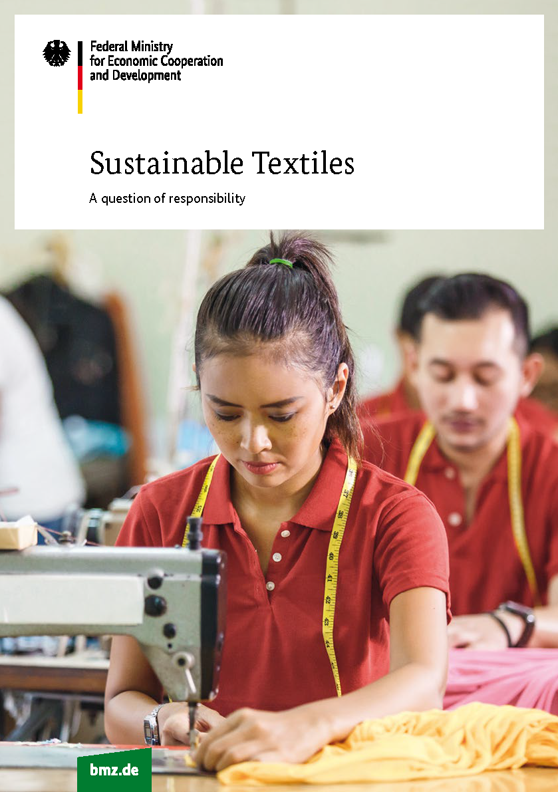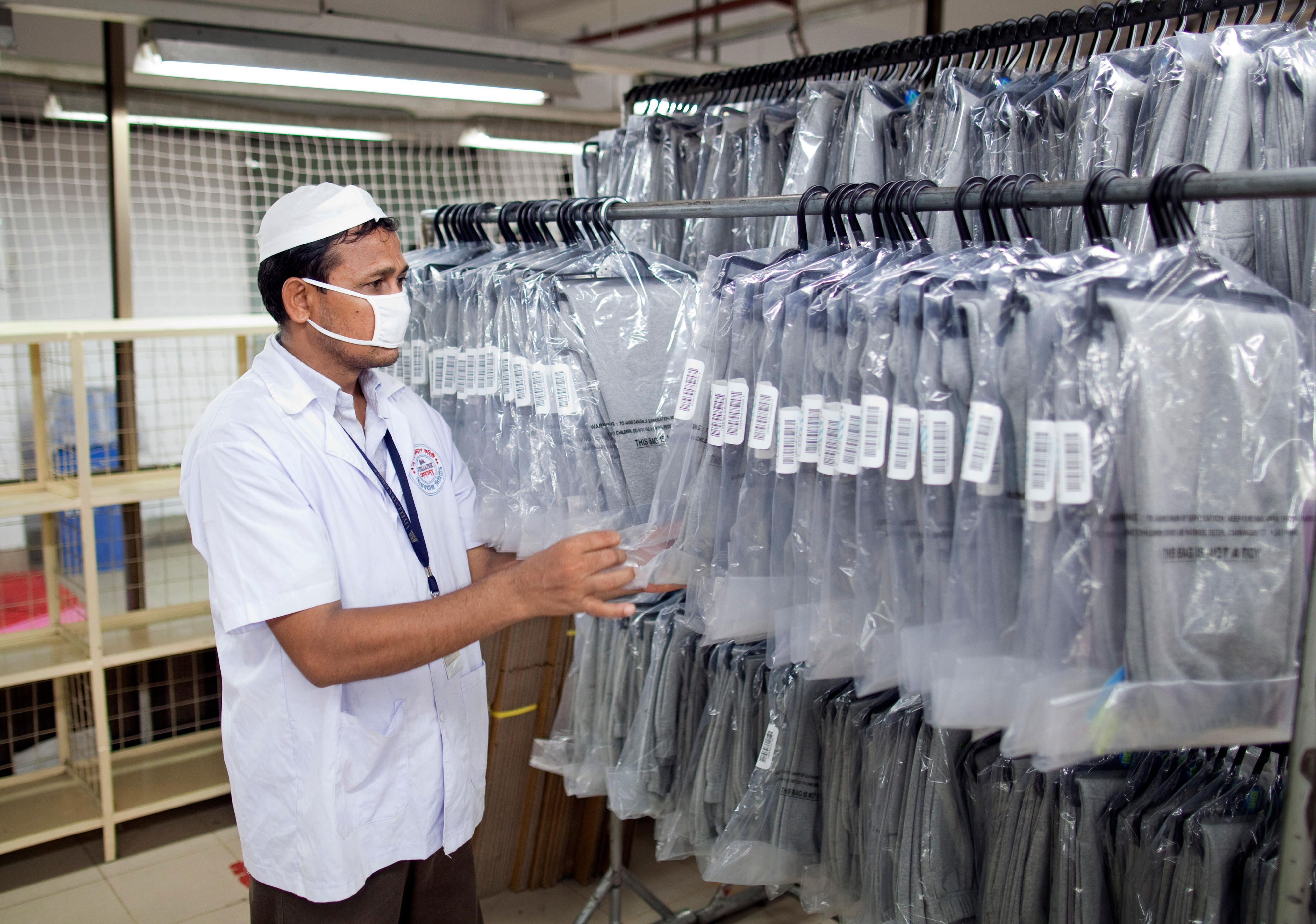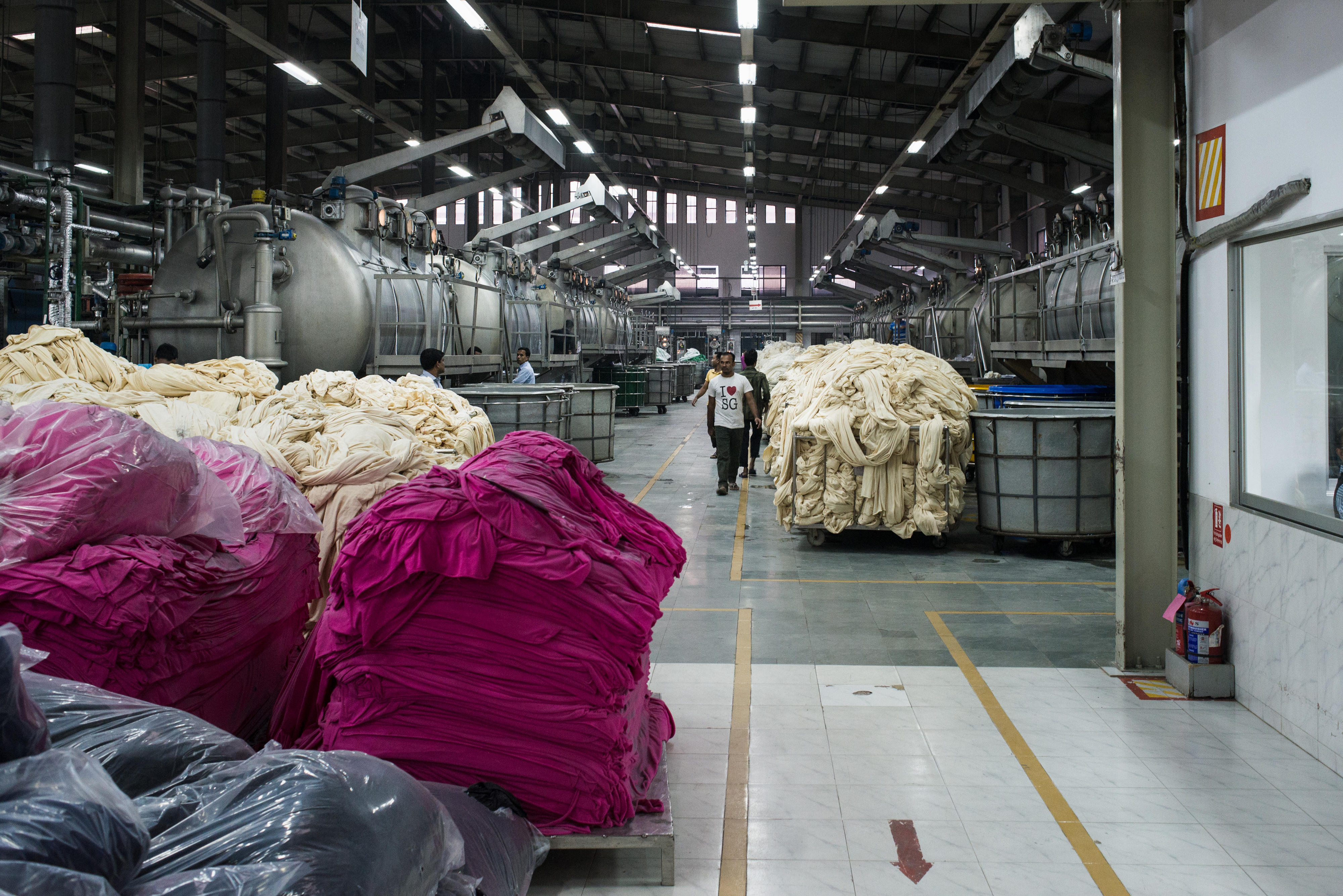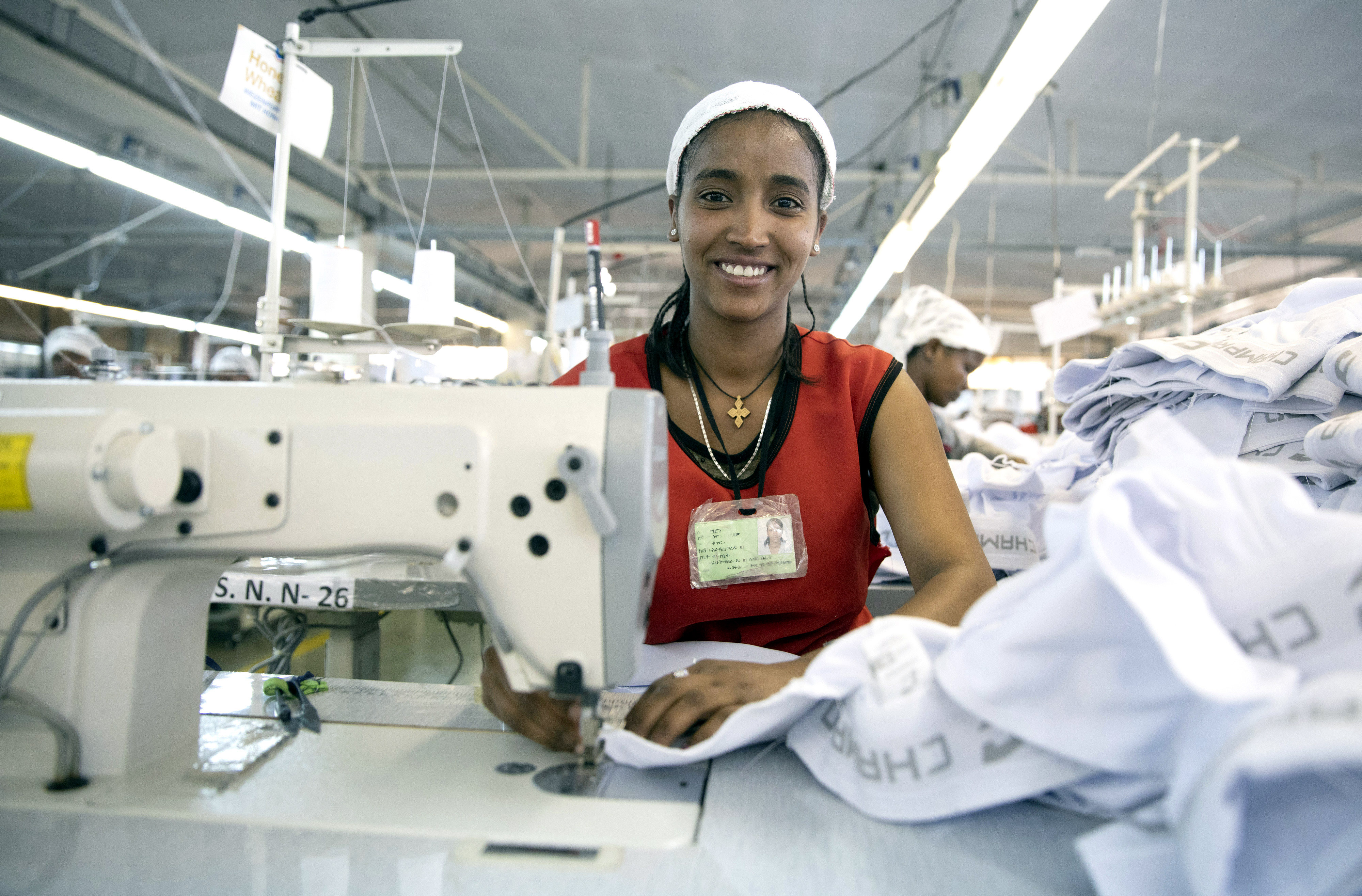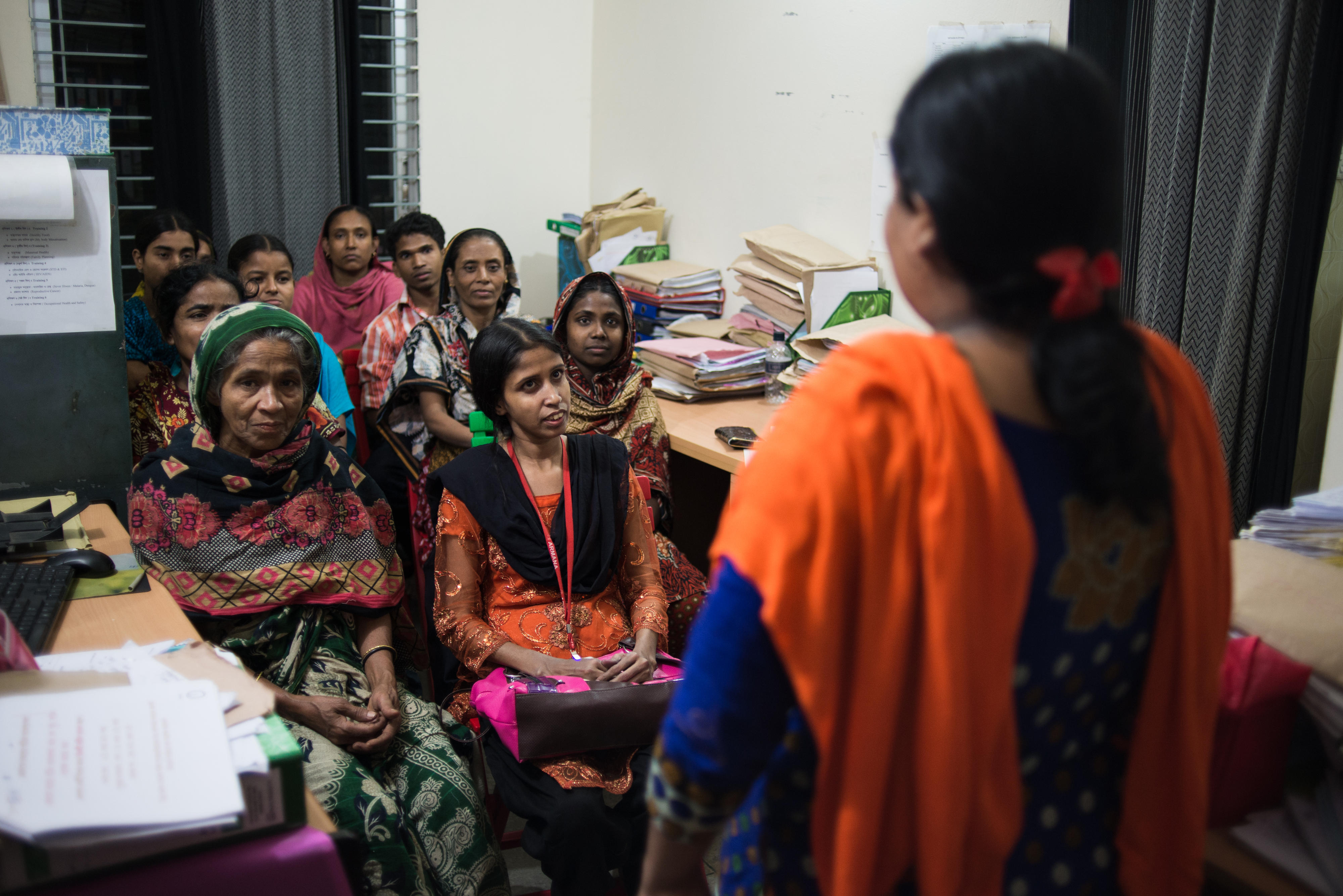Workers in a textile factory in Bangladesh, where special attention is paid to compliance with legal social and environmental standards
Copyright© Thomas Köhler/photothek
Improving environmental and social standards in the textiles industry
Vastly more textiles are now being produced than before. Fast fashion, with its rapidly passing trends, has resulted in more global consumption. That has negative impacts for people and the environment.
The textiles sector is responsible for between two and ten per cent of carbon dioxide emissions, 20 per cent of water pollution and between 16 and 35 per cent of the microplastics released into the oceans.
Alongside these ecological challenges, the textiles industry also gives rise to many social challenges. Inadequate workplace safety and the improper use and disposal of chemicals, for example from the dyeing process, endanger the health of people in the producer countries.
Working conditions are often gruelling, with people putting in 16-hour days for a wage they can barely live on, if at all. Since most of the workforce in the textiles sector is female, it is women who are particularly hard hit. They are often denied certain basic rights such as maternity leave, adequate healthcare or the chance to form trade unions.
We must accept our responsibility
Our shopping habits influence conditions in the countries that produce the goods we buy. That means we have a responsibility. We can live up to that responsibility by ensuring that fair social standards prevail across the supply chain. That way, people in the producer countries can take control of their own lives and earn a decent wage. And that means less migration and a generally more stable political environment.
In environmental terms, we can also consciously try through our consumption choices to cause fewer greenhouse gas emissions, preserve water resources and reduce the use of dangerous chemicals. In German development cooperation, the aim is therefore to work together with partner countries, business and civil society to improve environmental and social standards.
German activities
Our goal is clear: economic growth needs to be coupled with measures to protect people and the natural environment. That means putting in place decent working conditions, including paying a living wage. And it means production methods that have minimal impact on the environment and the establishment of a functioning circular economy.
With the introduction of the German Act on Due Diligence in Supply Chains, German companies must now observe certain due diligence requirements across their supply chains. That means analysing what impact their business activities are having on human rights and the environment, taking action to mitigate risks and establishing complaints procedures.
There is also a strong focus in German development policy on the following issues, which are currently major challenges in the textiles supply chain:
Our instruments
We use various instruments to ensure environmental and social standards are observed in the textiles sector. These include the Green Button (External link) and the Partnership for Sustainable Textiles (External link), both of them BMZ initiatives. The initiatives bring together major players in the sector; together, they pioneer measures that will lead to the socially just transformation of global textiles supply chains.
Companies licensed to use the Green Button and members of the Partnership for Sustainable Textiles are committed to improving working conditions and environmental protection in the textiles supply chain.
The Partnership for Sustainable Textiles was founded by the BMZ in 2014 and brings together companies, business associations, non-governmental organisations, standards organisations, trade unions and the German government. The members are committed to achieving the goal of a textiles and garment industry that is socially and environmentally sound and free of corruption.
The government-run Green Button certification label can be found on textiles from responsible companies that fulfil human rights and environmental due diligence obligations across the supply chain. The companies guarantee, by means of recognised certification labels, that the products have been produced in a socially and environmentally sound way. All this empowers consumers to make more informed and sustainable choices.
Our partners
We work together closely with our partner countries and with other partners such as companies, suppliers, civil society and international organisations to improve social and environmental conditions for the people working in the supply chain.
As at: 27/06/2024
